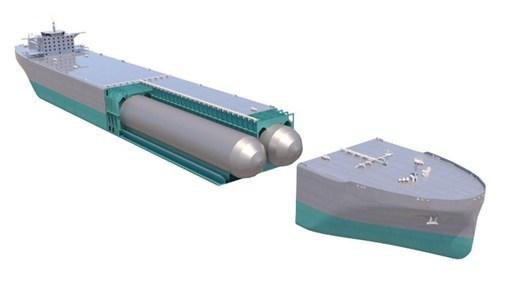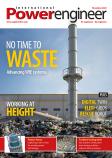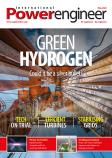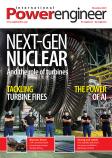
There’s been strong interest in using fuel cells to power larger vehicles on land with Hyundai, Toyota Motor North America and Cummins making strides in the bus and truck market.
Now the power generation industry is turning its sights on larger shipping vessels. Global Energy Ventures and Ballard are to start experimenting with a new fuel cell-powered ship called C-H2.
The first phase of the project will see the creation of a scale model demonstrator, with around 10 megawatts of power. The full sized version is planned to have 26 megawatts with a containment system for storage of 2,000 tons of compressed hydrogen from sustainable sources. Rob Campbell, Ballard Chief Commercial Officer commented, “Hydrogen and fuel cell technology provide a compelling path for the decarbonisation of the maritime sector, one of the key medium- and heavy-duty motive applications for which our products offer a particularly strong value proposition. Working with Global Energy Ventures will allow us to advance megawatt-scale hydrogen fuel cell and storage integration on board a large marine vessel. We are looking forward to collaborating with GEV on the visionary C-H2 Ship.”
How will fuel cells work on water?
The system will be very similar to the land-based designs used by the heavy vehicle producers. Hydrogen will be compressed and stored on board where it will then pass through the fuel cell membrane and be mixed with air. The electricity generated here is fed into a storage battery via a power management system, then onto an electric motor to run the propeller. The waste byproduct is water.
Although in the first stage the deal is just a non-binding memorandum of understanding (MOU) Ballard does have experience with other marine projects and will concentrate on the fuel cell itself, with Global Energy Ventures responsible for design approvals, development, financing and operation of C-H2 Ship, along with integration of the power system. Martin Carolan, executive director of Global Energy Ventures said, “This MOU is a significant step in our development of the company's C-H2 Ship, with hydrogen fuel cells now at the forefront of zero-emission technologies for shipping. We look forward to working with Ballard on the development of the C-H2 Ship's fuel cell system and power requirements in line with our development program for a compressed shipping solution for hydrogen marine transport at scale.”
















